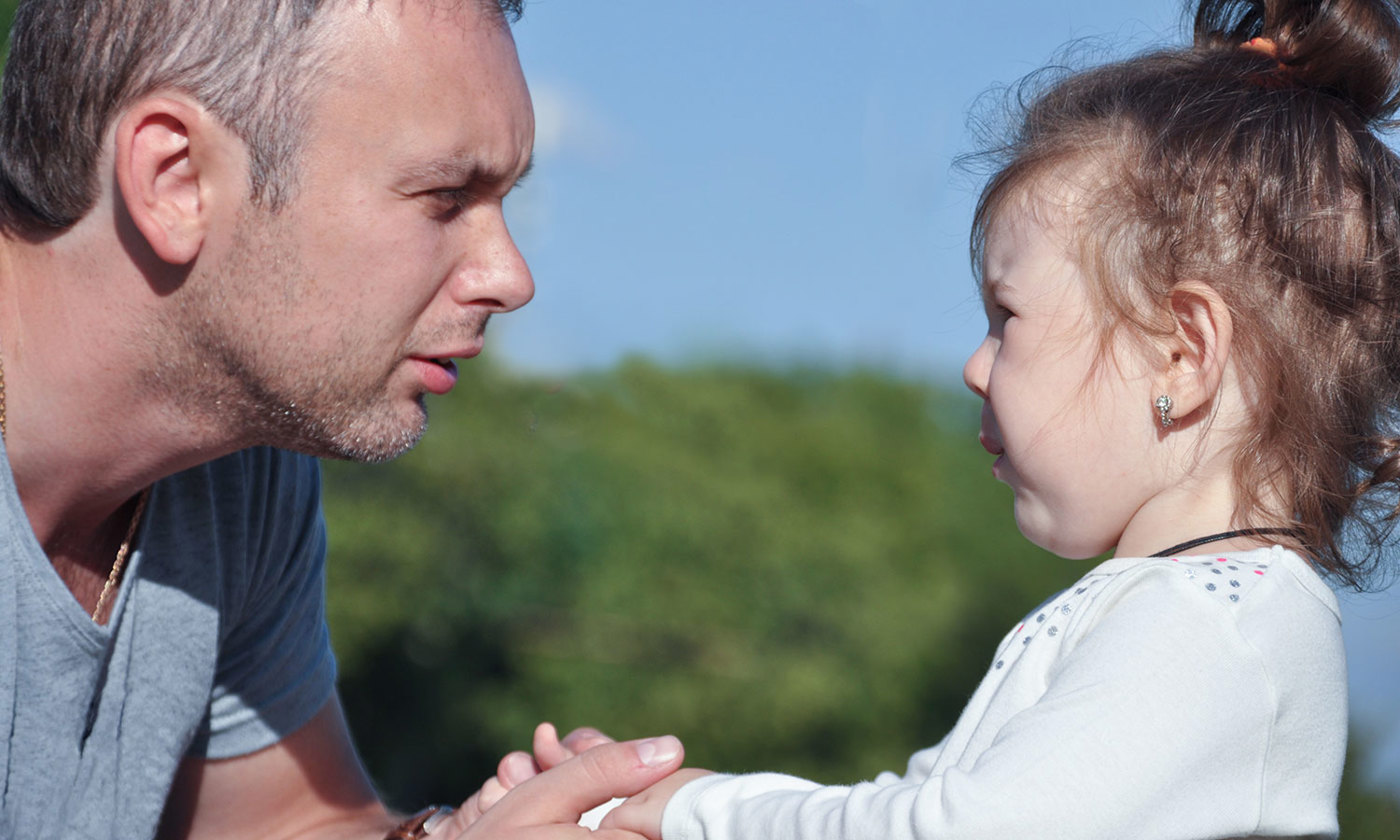Like what you see?
Sign up to receive more free parenting advice.
Thank you for subscribing to our newsletter!
Child Development

Credit: iStock.com/SyhinStas
When your child is raging, crying or screaming during a tantrum, it is quite normal to be drawn to feed off their energy and join in the explosion of emotions.
Tantrums offer us the power to demonstrate how to self-regulate, a key lesson in a child’s emotional development.
“Parent self-regulation is the ability for a parent to stay calm or manage their own emotions,” says Dr Becky Kennedy, clinical psychologist behind the popular parenting Instagram page Dr Becky at Good Inside.
“A child can’t feel that their emotions and feelings are safe and manageable, if they see that their feelings dysregulate (upset) their parents.
“One of the ways a child can learn to regulate their feelings is watching their parent manage and regulate their own feelings.”
What is a tantrum?
“Tantrums are not wilful acts of disobedience,” emphasises Dr Kennedy.
She explains that tantrums and meltdowns tell us that the feelings, urges and sensations in a child’s body are too overwhelming to be managed internally and so they explode externally.
“Children are essentially asking for help to feel safe again, for someone to be with them through the process,” she adds.
Dr Kennedy explains that instead of believing the issue is whatever sets the child off, for example, when you’ve said ‘no’ to something that they want, it’s important to understand that tantrums are usually a build-up of overwhelming emotions.
“They are usually built up over the day, and children can manage that build up here and there, until they are full and then it just all overflows,” she says.
A child can’t feel that their emotions and feelings are safe and manageable, if they see that their feelings dysregulate (upset) their parents.Dr Becky Kennedy
Stay up to date with the latest news and articles from First Five Years
Thank you for subscribing to our newsletter!
How to respond to tantrums
“When we see our children have an emotional meltdown, it evokes our own inner circuit of how we learned to regulate in the face of an emotional storm,” notes Dr Kennedy.
She suggestions some strategies.
“The first one is practising deep breathing and mindfulness or meditation throughout the day,” she recommends.
Dr Kennedy says we can’t learn to self-regulate when emotions are running high (for example, in the middle of a child demanding the rainbow cup, when you’ve never ever owned a rainbow cup).
“We need to learn to self-regulate in all the activities and experiences we have, in order to build up our skill set, so that, hopefully, when we need those skills, they become more accessible to us,” she says.
The second strategy is to understand your own deep feelings and emotions without self-judgement.
“You could use journalling as a tool, and ask yourself, ‘what are the moments that I struggle with?’,” she explains.
“But, doing that with self-compassion not with self-blame of how you did it wrong or what you should’ve done to be a better parent.
“Often self-judgement gets in the way of us working through our own feelings.”
The third strategy is using parenting courses or therapy to build up your own skills.
“To change anything with our children and helping them with their tantrums, we have to build up our own skills to regulate our own feelings,” she says.
“No adult is ever done learning about themselves and learning about their triggers and their strategies for self-regulating.”
Despite your best efforts, you are about to lose your temper, now what?
What happens when you’ve used every self-regulation tool in your toolbox, and you are getting to the pointy end of joining in on the tantrum?
Dr Kennedy recommends discussing your triggers with your children in advance.
She says telling them how, just like they have big feelings, parents have big feelings too and explaining what you need to do when you have those big feelings.
“Say something like: ‘I’m working on noticing my big feelings and calming my body, so if I tell you I need a moment, I am not mad, I’m not leaving you, you aren’t doing anything wrong. My feelings are mine and it’s my job to take care of them, and that might be my way of taking a little breather. I’m still your mummy/daddy who loves you so much.’”
Dr Kennedy explains that by doing this in advance, it sets both you and the child up to take a break when the tantrum becomes too overwhelming.
She recommends then stepping aside and using a strategy like deep breathing or even a mantra.
“My favourite mantra is: Nothing is wrong with me, nothing is wrong with my child, I can cope with this,” she says.
“The truth is it’s hard to stay calm during a tantrum, not because of the tantrum but because of what the tantrum evokes inside of you.
“You find yourself thinking, what is wrong with me, I’m not a good parent, something is wrong with my kid.
“But if we speak to that mantra, we can be a little bit better at self-regulating during those moments.”
Should we let children know how their tantrums make us feel?
Dr Kennedy points out that while we may think we are teaching our children empathy by telling them how their tantrum makes us feel - it doesn’t.
Instead, it sets them up for co-dependence.
Dr Kennedy explains that children learn who they are in the family environment based on the cues from their parents, and then take these lessons out into the world.
“So, they say, ‘who do I need to be, to be safe in my family, who do I need to be, to get love and security and attachment. Let me be those parts of myself and not the other parts as they are bad and dangerous’.
“And then those patterns get wired into their body and they take it into the world.
“What we don’t want is that our children feel that who they need to be is just whatever part is more convenient for us and everyone else, as that will have long term implications into their adulthood.”
Instead, Dr Kennedy says that children learn empathy after having many experiences of receiving empathy.
“Empathy goes hand-in-hand with boundaries,” she says.
“Empathy isn’t letting your child hit you or scream at you non-stop.
“Setting a boundary and showing empathy sounds like: ‘I know you are upset, you are allowed to be upset and when you get upset, it feels so big but I can’t stay here right now while you keep screaming at me, I’m going to step out of the room and I am going to come back because I love you and you’re a good kid and I know you can talk to me in a different way’.
“That is quite different than saying: ‘When you yell at me, you make mummy so sad’.
“You aren’t teaching empathy there, you are setting the stage for co-dependence as the child is learning that instead of regulating their feelings, they have to push them away to take care of you.”
Dr Kennedy completed her B.A. in Psychology and Human Development, Phi Beta Kappa and summa cum laude, from Duke University, and her Ph.D. in Clinical Psychology from Columbia University. She has trained at Bellevue Hospital and Mt. Sinai Hospital. Dr Kennedy presents a weekly podcast providing parenting guidance called Good Inside with Dr Becky.






